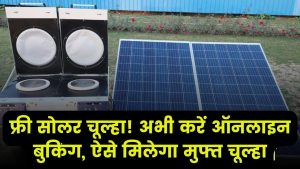Gardening is one of those activities that can make you feel closer to nature, whether you’re growing flowers, herbs, or vegetables. But let’s be honest—it’s not always easy. You’ve probably found yourself wondering why your plants aren’t thriving, despite all the care and attention you give them. The truth is, a few simple DIY planting tricks can completely change how your garden grows, making it more vibrant, healthy, and resilient. If you’re looking to transform your garden and ensure it thrives, these five tips will help you do just that. Trust me, these tricks are not only easy to implement but also incredibly effective, helping your garden flourish in ways you never thought possible.

When it comes to planting, sometimes it’s the little changes that make the biggest impact. These 5 simple DIY planting tricks will help ensure your garden thrives by improving soil health, water retention, and overall plant well-being. From using mulching techniques to employing companion planting strategies, these tips are beginner-friendly and don’t require a lot of fancy equipment or complex techniques. Whether you’re dealing with a small balcony or a sprawling backyard, these tricks can make a world of difference in your gardening efforts.
Table of Contents
DIY Planting Tricks
| DIY Trick | Description | Benefit |
|---|---|---|
| Mulch Application | Use organic materials like leaves, straw, or wood chips to cover soil. | Reduces water evaporation, suppresses weeds, and regulates soil temperature. |
| Companion Planting | Plant compatible plants together to benefit from each other’s strengths. | Increases growth, reduces pests, and improves soil health. |
| Proper Watering Techniques | Water deeply and less frequently rather than shallow and often. | Encourages deep root growth and prevents root rot. |
| Using Raised Beds | Create raised planting areas for better soil drainage and warmth. | Enhances soil structure and prevents compaction. |
| Homemade Fertilizer | Use kitchen scraps like coffee grounds or banana peels for composting. | Provides natural nutrients and reduces waste. |
By using these simple DIY planting tricks, you can transform your garden into a thriving, healthy space. From mulching to companion planting, watering deeply, using raised beds, and creating your own fertilizers, these tricks will help your plants grow stronger, healthier, and more vibrant. Gardening doesn’t have to be complicated, and these straightforward tips make it easier than ever to see results. With a little bit of effort and the right techniques, you’ll soon be enjoying a garden that’s not only thriving but also a true reflection of your care and dedication.
Mulch Application: A Simple Trick to Keep Plants Moist and Healthy
One of the easiest and most effective tricks for improving your garden’s health is mulching. This simple DIY planting trick involves adding a layer of organic material—like wood chips, leaves, or straw—on top of the soil around your plants. This helps to keep the soil moist by reducing evaporation, which is crucial during the hot summer months. Mulching also helps regulate soil temperature, protecting plant roots from extreme heat or cold. Additionally, it suppresses weed growth, meaning your plants won’t have to compete for nutrients. As the mulch decomposes, it also adds essential organic matter to the soil, further improving plant health over time.
Companion Planting: A Natural Way to Improve Plant Health
Companion planting is another trick that can significantly enhance the growth and health of your garden. By planting certain species together, you can encourage plants to help each other grow. For example, some plants naturally repel pests that might otherwise harm your other plants. Marigolds are known to keep aphids away from tomatoes, while basil can enhance the growth of tomatoes and even improve their flavor. Companion planting doesn’t just help with pest control, either. Certain plants can enrich the soil, provide shade, or even act as natural trellises for climbing plants. By doing a bit of research, you can easily pair plants that benefit each other, making your garden thrive even more.
Proper Watering Techniques: The Key to Strong and Healthy Roots
When it comes to watering your plants, it’s important to focus on depth, not frequency. Many gardeners make the mistake of watering their plants too often, leading to shallow roots that are more vulnerable to drought. Instead, water deeply but less frequently. This encourages the roots to grow deeper into the soil, which makes them more resilient during dry spells. Watering deeply also ensures that the moisture reaches the root zone, where it’s most needed. It’s best to water in the morning or evening to avoid the heat of the midday sun, which can cause rapid evaporation and waste water.
Using Raised Beds: Improving Drainage and Soil Structure
Raised beds are an excellent solution for improving your garden’s soil drainage and overall structure. They are particularly useful for gardeners who have poor soil, like clay-heavy soil that doesn’t drain well. Raised beds allow for better control over the soil composition, as you can fill them with nutrient-rich soil that provides an ideal environment for your plants. The added height also means the soil warms up faster in the spring, allowing for earlier planting and longer growing seasons. Plus, raised beds reduce the risk of soil compaction and erosion, giving your plants the best possible foundation to grow in.
Homemade Fertilizer: A Sustainable Way to Feed Your Garden
Instead of relying on chemical fertilizers, why not create your own homemade fertilizer from everyday kitchen scraps? Items like coffee grounds, banana peels, and eggshells are excellent sources of nutrients for your plants. Simply compost these items to create rich, organic matter that can be added back to your garden’s soil. Not only is this method eco-friendly, but it’s also a great way to reduce food waste and save money. Homemade fertilizers provide your plants with the necessary nutrients they need to thrive, without the harmful chemicals found in many commercial products.
Brush Smarter: The Eco-Friendly Benefits of a Bamboo Charcoal Toothbrush
FAQs
Is whey or plant protein better for muscle growth?
While both whey and plant protein can be effective for muscle growth, whey protein is generally considered superior due to its higher biological value and faster digestion. However, for those with dietary restrictions or allergies, plant proteins are a great alternative.
How often should I water my garden?
It’s better to water deeply but less frequently rather than shallow watering. Deep watering encourages roots to grow deeper, making your plants more drought-resistant.
Can I use old coffee grounds in my garden?
Yes, coffee grounds are a great addition to your garden. They provide nitrogen, which helps plants grow, and can also be used in compost.
How do raised beds improve plant growth?
Raised beds offer better drainage, reduce soil compaction, and warm up faster in the spring, giving plants a healthier environment to grow.
What is the best time of day to water plants?
Early morning or late evening is the best time to water plants, as it reduces evaporation and ensures the water reaches the roots efficiently.

















